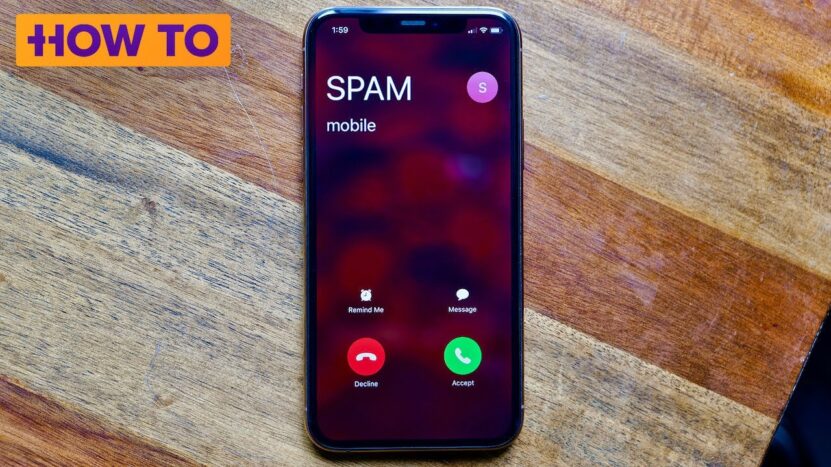Are you tired of getting anonymous calls or text messages from a bank? Is someone harassing or blackmailing you continuously on calls? For this case, if the situation continues for more than 1-2 days, you must file a complaint against the number in your nearby police department. No need to delete any of the harassing calls or messages sent to you. Instead, you can keep a record of them as evidence that will help at the time of confrontation.
In order to identify the users and register complaints against them, police would first get in touch with the service supplier whose line is sending the calls and messages. As per the Telephone Regulatory Act, service providers can block their services to those numbers if they are unable to identify the owners. You can also visit this site to receive the appropriate redress and solution.
No need to modify your contact details. Whereas if the police don’t accept a report, you can either go to the superintendent of the police or the local court that is closest to you.
What Type Of Calls/ Messages Can Be Considered A Harassment?

In order to report or stop a harassment call, you must initially be aware of what type of calls/ texts come under the criteria. If you receive bank calls or calls from any intermediary for the following reasons, it is a type of harassment call.
- If you receive any calls from a particular bank agent more than 3-4 times regarding a particular topic.
- The person calling or texting you uses a harsh or vulgar tone.
- If someone is calling you early in the morning, before 8 am, or too late in the night, say around 10 pm or afterward.
- If the messages/calls appear to be threats of violence or have any other malicious intent.
- When the caller gives any legal threats like, you’ll be arrested.
- If the caller asks you to pay for more debt than what you originally owe.
- The caller makes any fake or misrepresenting allegations.
Tricks To Stop Receiving Annoying Bank Calls

Nearly every day, countless individuals are duped by con artists impersonating bank employees through bogus emails, texts, and phone calls. However, the issue worsens as more people utilize mobile and web banking. It is high time now to put an end to the problem with a few tricks. Read below to find out.
- For any promotional or marketing calls, you can just tell them that you have no interest in the same and politely ask the agent to add your number to their denylist.
Or you can answer the phone saying you are a student who does not require all this. This will violate their database, causing them to eliminate you from the list.
And in case someone calls you again for the same thing, you can warn them by saying that you will file a complaint against them. This trick will indeed work well for at least a few days.
- If you receive a casual call from bankers or insurance firms for “a special deal, especially for you.”
You can reply to them by saying that you lost your job recently and have credit cards whose payment has been pending for months, but you are looking for other credit cards or advance loans. They will immediately lose the ability to contact you, and you will be left alone for at least a couple of months.
- If you receive a harassing or intimidating call from someone claiming to be a part of your bank and you’re unsure if it’s legitimate, be attentive. Cross-check the caller’s identity by calling the bank’s official customer service number, which can be found on their website or the back of your debit/credit card. If the caller is making false statements about your account, you can file a complaint against them for defamation and harassment. Additionally, consider sending a legal notice to the bank to address the issue.
You must understand that, in some cases, what they are doing is a part of their job, so there is no need to handle them too rudely or use abusive language. They are doing so as their job requires them to do and not to irritate you.
Precautions To Stay Safe From Fraudulent Bank Employees

There can be a type of scam if you receive repetitive and anonymous calls from a bank. It occurs when anyone impersonates banking institutions to obtain access to your personal data like money information, bank account details, etc. They not only make calls but also send messages, emails, and instant messages using the platforms for the same.
The American Bankers Association estimates that this fraud costs thousands of regular people their money yearly.
First, be skeptical of anyone claiming to be from the bank. Better safe than sorry.
Believing solely in your caller ID does not offer any guarantee because scammers have the ability to intercept mobile numbers and disguise their calls like they’re coming from a specific number.
Learn the information that scam artists will only request. When someone calls you and asks for details such as your banking credentials, OTP codes for different accounts, debit card details such as end date, Passcode, or security code, etc., this is an instant warning sign.
When receiving such calls, do not answer their questions and hang them up instantly.

After that, call the bank to notify this encounter.
Your bank will help you verify if it was a legitimate call or message. Use the direct contact info for your neighborhood branch or the client service number listed on the bank’s site, as recommended. The suspicious person might have provided you with a contact number; make sure not to use it.
We also urge you to immediately contact your nearest law enforcement agency and inform these cases.
Conclusion
Currently, people are often the victim of unwelcome and harassing calls and messages in which the caller belittles, threatens or otherwise violates the other person’s dignity. The fact that the individual speaking on the other end of the call is unfamiliar makes it riskier. Such rings or messages can be considered a crime, so they should be reported at the earliest possible to an authorized entity.

